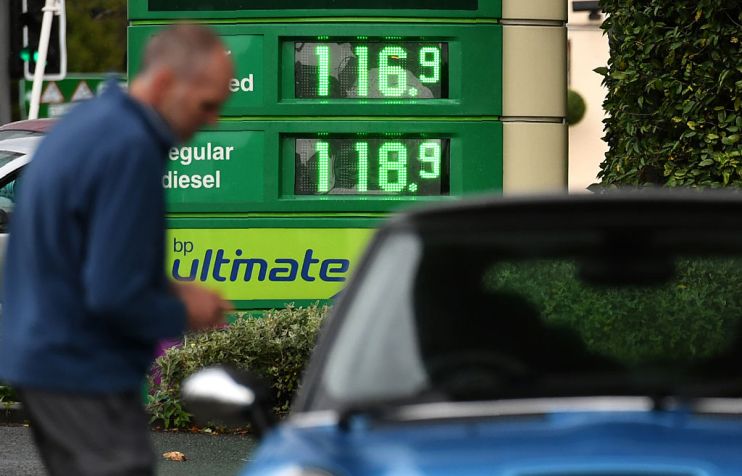UK inflation rate plunges to lowest level since 2016 amid coronavirus

The UK inflation rate tumbled from 1.5 per cent in March to 0.8 per cent in April as coronavirus pushed Britain into lockdown, according to data out today.
Collapsing oil prices contributed to the plunge in the consumer prices index (CPI) that determines the inflation rate, the Office for National Statistics (ONS) said.
It fell to 0.8 per cent in April, a massive month-on-month drop and the lowest inflation rate since August 2016.
Core inflation slipped from 1.6 per cent in March to 1.4 per cent in April.
Falling energy and fuel pump prices weighed on CPI while clothing retailers also slashed prices in a bid to lure consumers shopping online.
Rising prices for some recreational goods partly offset the pressure on UK inflation.
The inflation rate sank below expectations of 0.9 per cent in April after Britain entered quarantine in late March, and economists warned it could fall even lower.
“Inflation looks certain to fall back markedly further and we believe it could get as low as 0.3 per cent over the summer,” Howard Archer, chief economic adviser to the EY Item Club, said.
Low oil prices and weak economic activity will continue to limit inflation in the short-term, he said. But the low UK inflation rate will bolster consumer spending power, Archer also said.
“Current substantially contracting UK economic activity amid still highly restrictive lockdown measures is exerting downward pressure on prices,” he said.
“Many people have already lost their jobs, despite the supportive government measures while others will be worried that they may still end up losing their job once the furlough scheme ends. Additionally, many incomes have taken a hit. This is likely to keep consumers price conscious for some time, even when the economy starts to recover.”
The fact UK inflation is over one per cent off the Bank of England’s two per cent target means governor Andrew Bailey must write to the Treasury to explain what measures he will take.
Capital Economics said the pressure on the Bank’s monetary policy committee “to loosen monetary policy further” will increase amid the UK’s weak economic outlook.
While the Bank of England has predicted a so-called V-shaped economic recovery, chancellor Rishi Sunak yesterday appeared to caution against that.
He told the House of Lords that it was “not obvious” why the UK will recover quickly from what he has called a “significant recession”.
“Once the lockdown ends, we expect core inflation to remain extremely subdued, as weak demand more than offsets any supply-driven upward pressure on prices,” said Ruth Gregory, UK economist at Capital Economics. “Against this background, we expect the Bank to expand its quantitative easing programme further.”